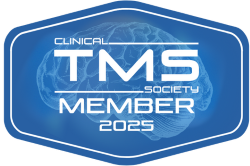Insurance Coverage for TMS: Your Complete Guide to Treatment Options
July 8, 2025
Everything you need to know

One of the most common concerns we hear from patients centers around insurance coverage for TMS therapy. The reality is both encouraging and complex, so let's break down exactly what you need to know.
When Insurance Says Yes to TMS
Most major insurance providers, including Medicare, will cover TMS treatment under specific circumstances. The standard requirement involves demonstrating treatment-resistant depression in adults over 18. This means you've tried multiple antidepressant medications without success and completed therapy sessions that haven't provided adequate relief.
The catch lies in the treatment format insurance companies approve. Current coverage extends exclusively to the conventional 36-session approach, spread across six to eight weeks of daily visits. This protocol earned FDA approval first and carries the most extensive clinical trial documentation.
The Innovation Gap
While insurance covers traditional TMS protocols, they haven't embraced newer accelerated formats. Our revolutionary ONE-DAY TMS Protocol delivers the same neuroplasticity benefits through concentrated treatment in a single day, but insurance companies operate on precedent rather than innovation.
This creates a frustrating disconnect. The accelerated approach often proves more practical for working professionals, parents, students, and anyone whose life doesn't accommodate weeks of daily appointments. Yet the insurance system rewards the less convenient option simply because it appeared first in their approval process.
Our Comprehensive Approach to Access
At KIND TMS, we've structured our practice to serve every patient regardless of their insurance situation. We provide both insurance-covered traditional protocols and our accelerated innovations.
For insurance-based treatment, our team manages the entire authorization process. We verify benefits, compile required documentation, submit appeals when necessary, and advocate directly with your insurance company. You focus on healing while we handle the bureaucratic maze.
We also offer transparent self-pay options for patients choosing accelerated protocols. Our pricing includes everything: comprehensive evaluations, treatment sessions, physician oversight, and follow-up care. No hidden fees, no surprise charges, no upselling.
Financial Solutions That Work
Understanding that mental health treatment represents a significant investment, we've developed multiple pathways to make care accessible:
Zero-interest financing spreads costs over manageable monthly payments. HSA and FSA accounts can cover treatment expenses. We maintain partnerships with foundations that provide grants and sponsorships for qualifying patients.
Veterans deserve special mention here. We've established relationships with organizations specifically supporting former military personnel struggling with depression, anxiety, PTSD, and traumatic brain injuries. These partnerships often cover treatment costs entirely. If you've served our country, please reach out directly—resources exist that might eliminate your financial burden completely.
The True Cost Conversation
When patients express concern about treatment costs, we encourage a broader perspective. Many have already invested thousands in medications that didn't work, therapy sessions that helped but weren't sufficient, and the hidden costs of decreased productivity and strained relationships.
Traditional TMS courses typically range from $5,000 to $8,000. Our ONE-DAY Protocol starts at $10,000. These numbers include comprehensive care from initial evaluation through follow-up support.
The investment goes beyond immediate symptom relief. TMS helps rewire neural circuits at their source, often providing lasting changes that medications alone cannot achieve. For many patients, successful treatment eliminates ongoing medication costs, reduces therapy frequency, and restores their ability to function fully in work and relationships.
Why the System Needs to Evolve
The current insurance framework reflects outdated thinking about mental health treatment. Requiring patients to fail multiple medications before accessing TMS delays care unnecessarily. Limiting coverage to protocols that demand daily appointments for weeks creates barriers that prevent many people from getting help.
Meanwhile, accelerated TMS protocols deliver equivalent results with significantly less disruption to patients' lives. Research consistently demonstrates that concentrated treatment can be more effective than stretched-out approaches, particularly for patients dealing with work responsibilities, caregiving duties, or geographic constraints.
Insurance companies will eventually recognize these realities. Until then, we refuse to let their limitations determine who can access breakthrough care.
Making Your Decision
Every patient's situation differs, and we tailor our recommendations accordingly. Some prefer working within their insurance coverage despite the time commitment. Others prioritize the convenience and speed of accelerated treatment even when paying out of pocket.
During your initial consultation, we review your specific insurance benefits, discuss all available protocols, and help you understand the practical implications of each choice. We also explore financing options and potential foundation support based on your circumstances.
The goal involves finding the right treatment approach for your life, not forcing your life to accommodate an arbitrary treatment schedule.
Veterans: A Special Commitment
Military service members and veterans face unique mental health challenges. Combat exposure, repeated deployments, and the stress of transition to civilian life create complex trauma patterns that respond well to TMS therapy.
We've prioritized veteran care through specialized foundation partnerships. These relationships often provide full treatment coverage for former Navy SEALs, Marines, and service members from all branches dealing with depression, anxiety, PTSD, or traumatic brain injuries.
Your service to our country shouldn't leave you struggling with mental health challenges that effective treatment could resolve. We've made it our mission to ensure cost never prevents a veteran from accessing the care they've earned through their sacrifice.
Beyond Insurance: The Bigger Picture
The insurance landscape will change as evidence continues mounting for accelerated TMS protocols. Early adopters of medical innovation always face coverage gaps before the system catches up.
We see this pattern repeatedly in healthcare. New surgical techniques, diagnostic tools, and treatment protocols often require years of additional data before insurance companies expand coverage. TMS acceleration protocols are following this same trajectory.
Meanwhile, patients benefit from having choices. Some situations call for traditional approaches, others for innovative solutions. We provide both because different people need different pathways to healing.
Taking Action
Your mental health matters more than insurance timelines or coverage limitations. Whether through traditional protocols covered by your plan or accelerated treatment you invest in directly, effective help exists.
We encourage you to explore all options during a consultation. Our team will review your insurance benefits, explain different treatment approaches, and help you understand the practical and financial implications of each choice.
Mental healthcare works best when it fits your life rather than disrupting it. At KIND TMS, we've designed our practice around that principle, offering flexible approaches that meet you where you are.
Ready to discuss your specific situation and explore all available options. Contact our team to schedule a consultation where we can review your insurance coverage, discuss treatment protocols, and create a plan that works for your unique circumstances.
Treatment outcomes vary among individuals. Please consult with qualified healthcare providers to determine the most appropriate treatment approach for your specific mental health needs.

Meet the Author
Dr. Georgine Nanos, MD, MPH
Founder of Kind Health Group







